She is considered a national treasure. Celebrated author, academic and accomplished motivational speaker Dr Sindiwe Magona continues to pave the way to success.
Now retired from the United Nations headquarters in New York, after more than two decades of service, she is a recipient of four honorary doctorates from various local universities and is the author of over 100 children’s books, stage plays, and short stories.
She is currently the Writer in Residence at UWC, with fellow author Dr Meg Vandermerwe, who was her supervisor during her studies.
Mother to Mother, was optioned (the producer has simply purchased the “exclusive right” to purchase the screenplay) by Universal Studios for a film based on the life of the late American graduate of Stanford University and an anti-Apartheid activist in South Africa, Amy Biehl. Reese Witherspoon was cast to play Biehl, who made international headlines after her murder in Cape Town during political unrest in 1993.
Reflecting on her career, Dr Magona said she was pleased with her accomplishments. She singled out The order of Ikhamanga, one of the country’s most prestigious awards, as a personal highlight.
Dr Magona regards her writing as “necessary”.
She currently occupies the role of Senior Research Fellow at the University of the Western Cape (UWC).
UWC’s Graduation Ceremony on Friday, September 9 is going to be a grand affair. And Dr Magona, a former domestic worker, will make history. She’ll become the first-ever recipient of a PhD degree in Creative Writing at the institution.
Pan Macmillan released her latest book, When the Village Sleeps, which formed part of her thesis, in May 2021. She said her research, in narrative form, dealt with the same novel (When the Village Sleeps). It is about a young woman, Mandlakazi, who was born severely malformed – the result of deliberate in vitro chemical exposure by her teen mother, Busisiwe, so she could benefit from the government grant system.
“To read in a magazine article that this is a growing trend in the townships, alarmed and saddened me, especially since the logic behind this is based on the fact that the child support grant is a pittance, compared to the care dependency grant for children living with disabilities,” she said.
“It said, as a nation, we neglected the most vulnerable, the unborn child. That thought, in turn, led to an examination of the meaning or significance of the grant system.”
Dr Magona was born in Transkei and raised in the Blouvlei Location in Retreat. She was 17 when her family was forcefully moved to Gugulethu in Cape Town. After completing her BA undergraduate degree by correspondence, she earned a scholarship to study for her Masters degree in Social Work at Columbia University.
Mother to Mother is the first of four novels, and Dr Magona writes in English and isiXhosa. She also translates for various media houses, including film. Some of her work includes autobiographical books: To My Children’s Children and Forced to Grow; two collections of short stories: Living, Loving, and Lying Awake at Night and Push-Push.
“The process is driven by my thinking or seeing a void which I attempt to fill. There was a time in the history of our country when most, if not all writing on black life, was done by white writers,” she explained.
“Why are white people writing about us?’ became a cry of the Black Consciousness or political activists. I merely responded to it, after first unthinkingly subscribing to it. As I was thinking more and more about it, it eventually had me thinking that this shouldn’t stop us from writing about ourselves.”
She appreciates the lessons learned from being an author: “What I love about writing is how much it makes me see how much I do not know. I am always surprised by what I learn and what I need to learn, as I write. If I had the opportunity to give my young self some advice, it would be to read, read and continue reading. A golden piece of information for any writer who starts out writing is to keep what you write. I have learned to keep it on file safely so you can refer to the material or use it at a later stage.”
Several of her short stories, essays, and poems have been anthologised. She is the founder of the Gugulethu Writers’ Group in Cape Town, which she runs on a voluntary basis to encourage women to write their stories.
“For me, the hardest part of writing a book is starting; strangely, it is also the best part because that is the first step, tentative but necessary – without it no book would ever be written, because writing a book spells commitment.”
She explained that most of her writing stemmed from provocation, rather than inspiration.
“I am normally angered or sorrowed or disgusted into writing,” said Dr Magona.
Many of Dr Magona’s books have been turned into theatrical plays which have been performed on many stages, including at the annual National Arts Festival and the Rwanda Festival.
Besides hosting writers’ conferences, Dr Magona has given readings and addresses at international fora, including the United Nations, the Kennedy Center and the Ford Foundation.
She has received awards in recognition of her work on women’s issues, the plight of children, and the fight against apartheid and racism. Her first ten years at the United Nations were in the Department of Public Information, where she worked in the Anti-Apartheid Radio Programmes.
Some of the awards she received include the New York Foundation for the Arts – Fellowship – non-fiction category (1997), A Lifetime Achievement Award for Beauty’s Gift from Women Demand Dignity (2008) and recently an Honorary Doctorate from Fort Hare University (2021).
- Students from all seven faculties of the University of the Western Cape will graduate on Friday, 9 September in the Jakes Gerwel Hall.
- The graduation ceremony produced 47 PhD degrees, 92 Masters, 85 Honours degrees, 343 Undergraduate degrees and 113 Post-graduate degrees. Furthermore, it produced 18 certificates and five Post Graduation Certificates in Education.

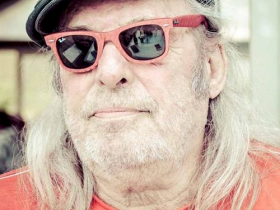
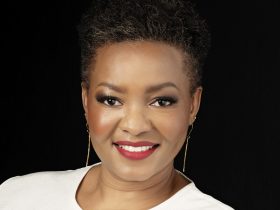

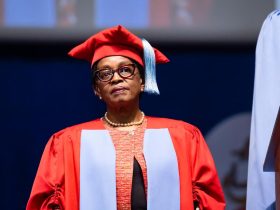


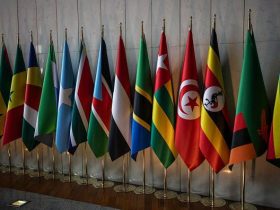
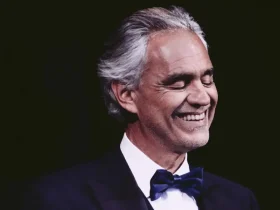
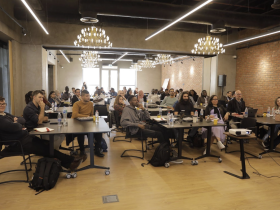









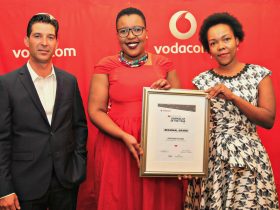








Leave a Reply